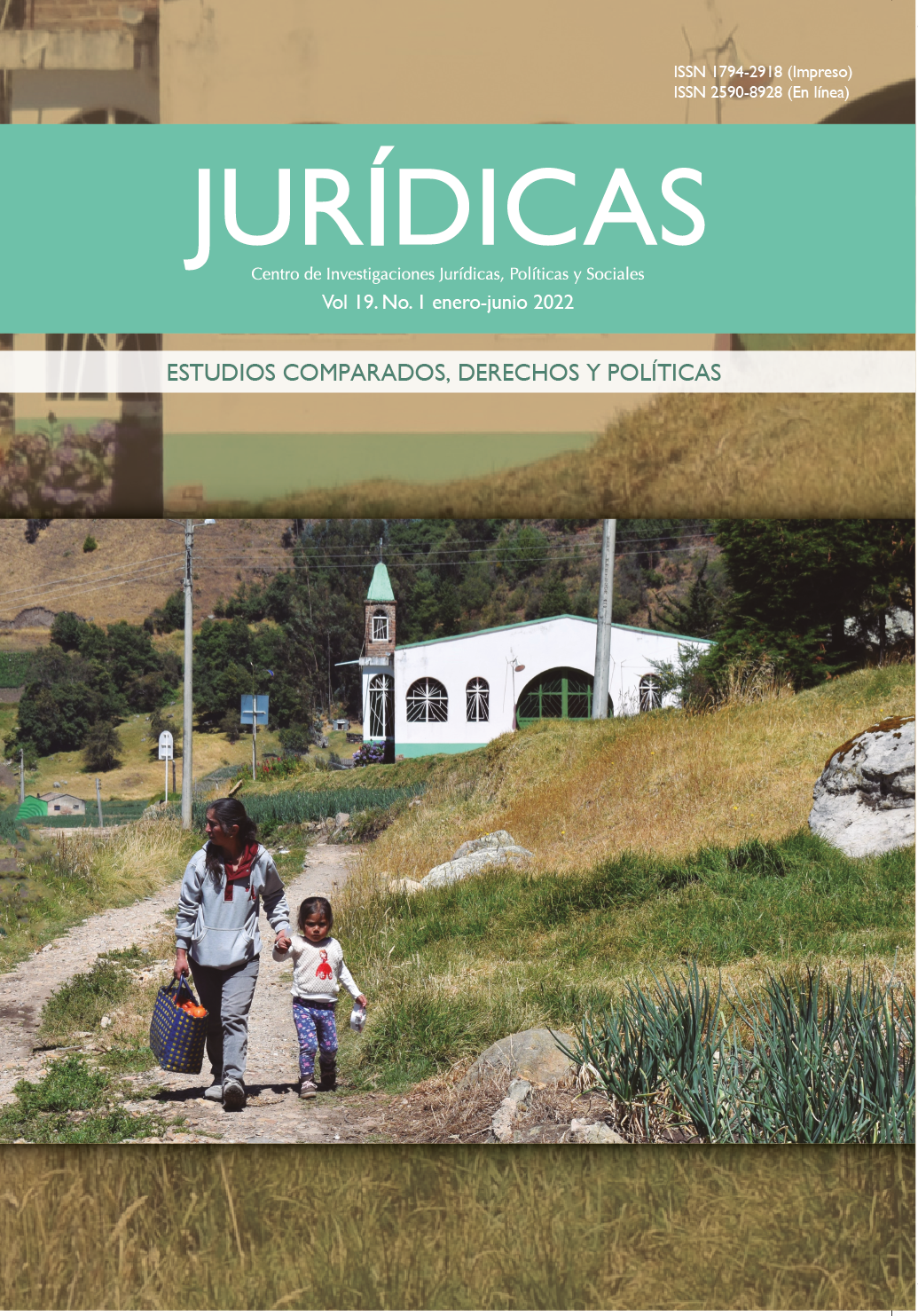Authors
Abstract
The objective of this work is to show the meanings of political crime and participation in politics projected by the magistrates of the Colombian Constitutional Court through the arguments used in judgment C-577 of 2014 and in their dissenting votes. The methodological approach chosen was
descriptive and interpretive, focused on the analysis of how the arguments put into play in judgment C-577 of 2014 by the magistrates of the Constitutional Court contributed to updating the sense of political crime and participation in politics in Colombia. Three results stand out: 1) the majority
of the magistrates used an argumentative model in order to project a sense of inclusion and deliberation regarding how participation in politics and political crime should be interpreted; 2) the total dissident magistrate resorted to an argumentative scheme to position a merely formal sense focused on the follow-up of unavoidable procedures; and 3) the partial dissenting magistrates used an argumentative model with the purpose of introducing a sense of radical inclusion. It is concluded that the deliberative inclusive sense managed to position itself in Colombia as an obligatory reference when the secondary constituent intends to regulate the function constitutionally attributed to the Legislator to set the normative content of the political crime in order to favor the participation in politics of those who have participated in the internal armed conflict within a context of transitional justice.
References
Congreso de la República de Colombia, Acto Legislativo 01, 2012.
Constitución Política de Colombia [Const]. 4 de julio de 1991 (Colombia)
Corte Constitucional de Colombia. (28 de agosto de 2013). Sentencia C-579/13. [MS Jorge Ignacio Pretelt Chaljub]. http://www.corteconstitucional.gov.co/relatoria/2013/C-579-13.htm
Corte Constitucional de Colombia. (2013-2014). Expediente D-9819, Archivo Central, Bogotá.
Corte Constitucional de Colombia. (6 de agosto de 2014). Sentencia C-577/14. [MP Martha Victoria Sáchica Méndez]. http://www.corteconstitucional.gov.co/relatoria/2014/C-577-14.htm
Corte Constitucional de Colombia. (2014). Salvamentos de voto a la sentencia C-577. http://www.corteconstitucional.gov.co/relatoria/2014/C-577-14.htm
Dueñas-Ruiz, O. J. (2015). Lecciones de hermenéutica jurídica. Editorial Universidad del Rosario.
Gadamer, H. G. (2012). Verdad y método. Ediciones Sígueme.
Gobierno Nacional de Colombia y FARC-EP. (2016). Acuerdo final para la terminación del conflicto y la construcción de una paz estable y duradera. https://www.jep.gov.co/Normativa/Paginas/Acuerdo-Final.aspx
Pedraza, J. C. (23 de septiembre de 2017). Las últimas 15 armas entregadas por las Farc fueron inutilizadas. El Tiempo. https://bit.ly/3jV8xn8
Rodríguez-Bello, L. I. (2004). El modelo argumentativo de Toulmin en la escritura de artículos de investigación educativa. Revista Digital Universitaria, 5(1), 1-18. http://www.revista.unam.mx/vol.5/num1/art2/art2.htm
Tarapués, D. (2015). Contenido y alcance del delito político en el marco jurídico para la paz y en la sentencia C-577 de 2014. En K. Ambos (ed.), Justicia de transición y Constitución II (pp. 1-46). Cedpal-Temis-Konrad Adenauer Stiftung.
Toulmin, S. E. (2007). Los usos de la argumentación (2da ed.). Península.

 PDF (Español)
PDF (Español)
 FLIP
FLIP



























